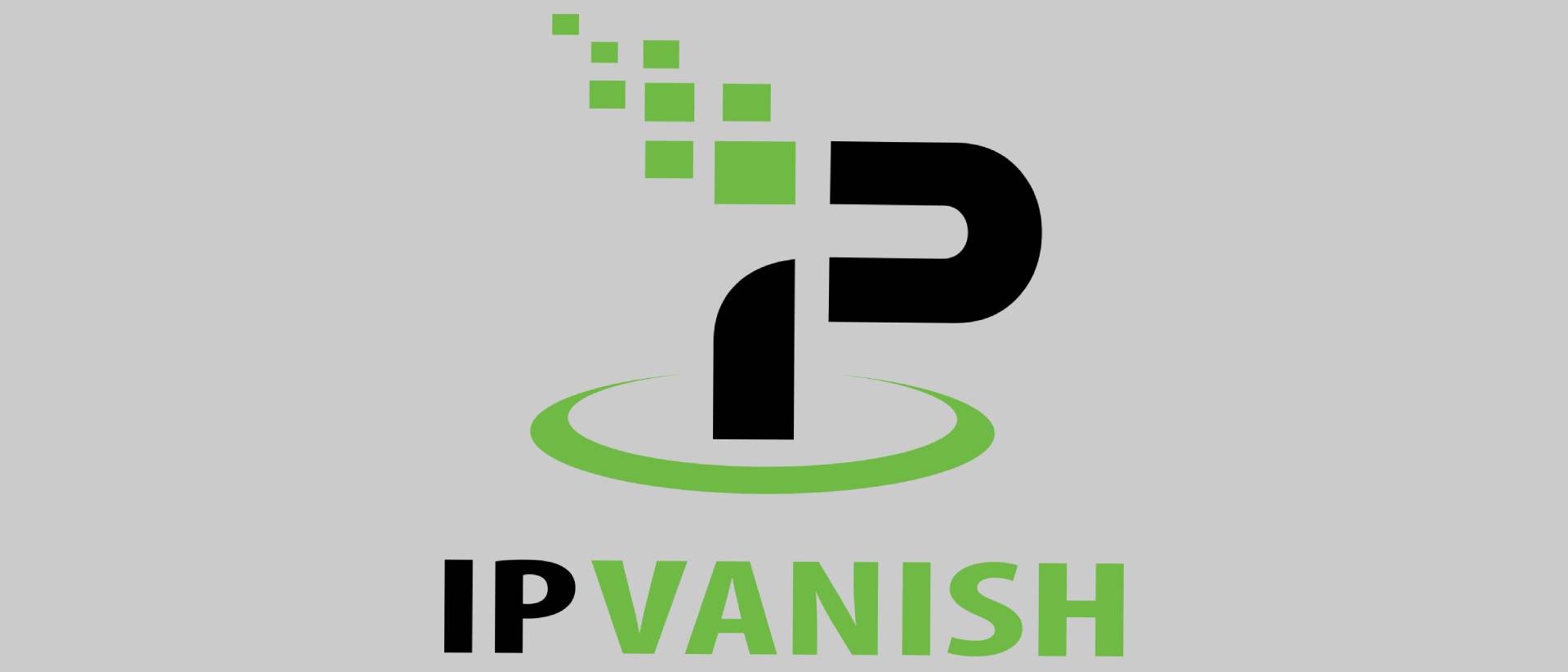Laptop Mag Verdict
IPVanish is a fantastic, simple VPN for those who are after great internet speeds and stable connections, but its price doesn’t justify the limited amount of servers and features it offers.
Pros
- +
Unlimited device connections
- +
Great internet speeds
- +
Attractive “gamer” user interface
- +
SugarSync file storage
Cons
- -
Pricey monthly plan
- -
Limited amount of servers
- -
App issues
- -
No BBC iPlayer
Why you can trust Laptop Mag
Works on: Windows, Mac, Android, iOS, Linux, FireTV, PlayStation, Xbox, routers
24/7 support: Yes
Trial period: 30 days
Number of servers: 1,600+
Server locations: 75
Countries: 59
Maximum devices supported: Unlimited
IPVanish is a VPN service that wasn’t made with gamers in mind, but its user interface’s cool black and green aesthetic (akin to Razer) certainly says otherwise. It even categorizes servers based on ping — something gamers always keep in mind for PC games.
Whether connecting to the U.S. or Germany, my connection never dipped out and speeds were consistently fast. That being said, with there being fewer servers and in a lot of countries, users might run into problems if a country’s server isn’t working. Fewer servers means more chances of higher traffic on a single one, which causes slower internet speeds.
However, having unlimited connections (just like Surfshark) is a major win in our books, making IPVanish a fantastic option for those with a substantial number of gaming devices, or anyone looking to start a fairly lengthy LAN party session. IPVanish is a great choice for those who are after one of the best gaming VPN services around, and it definitely has a spot as one of the best VPN services.
IPVanish pricing and availability
IPVanish has two subscription plans, split between monthly and annual pay. Users can choose between paying $9.99 for a monthly plan (with the first month priced at $4.99) or $89.99 for a yearly plan, which averages $7.49 a month. However, the first year of the annual plan is priced at $44.99, averaging $3.75 per month.
IPVanish also offers a unique package where users can store up to 500GB of fully protected data using SugarSync. Prices range from a monthly package priced at $10.99 (with the first month priced at $5.49), or $99.99 for the yearly plan, although the first year is billed as $49.99, averaging $4.15 per month.
In terms of monthly pricing, IPVanish is one of the priciest VPN services out there, and after its first year, the annual plan doubles in price. While it does offer a good host of services, especially the option for protected storage, some of its VPN competition offers more at cheaper prices. If you are planning to use it for a year, it’s not a bad option, and there’s a 30-day money-back guarantee if you’re not convinced this is the VPN service for you.
IPVanish streaming and unblocking
After testing multiple streaming platforms, including Netflix, Amazon Prime Video, BBC iPlayer and Disney+, IPVanish blazed past any geo-restriction and let me watch what I wanted so long as I used the list of available countries. That is, except the BBC iPlayer. This meant I could watch the latest episode of Jujutsu Kaisen on Japanese Netflix, without any buffering, but couldn’t access any shows on the BBC iPlayer.
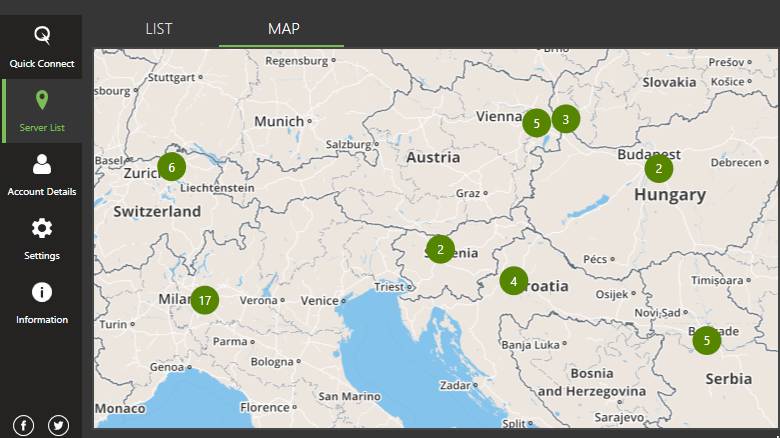
When connecting to VPN servers in Europe, whether I tried France, The Netherlands and Denmark, Netflix kept thinking I was in Ireland. However, when I connected to other countries, such as the United States, Singapore and Japan, it recognised these regions. This isn’t too much of an issue, as there are only small differences in the catalogue of shows presented in various European countries, but it’s still something to keep note of.
IPVanish server locations
The one thing IPVanish is severely lacking in is the number of servers and locations it offers.
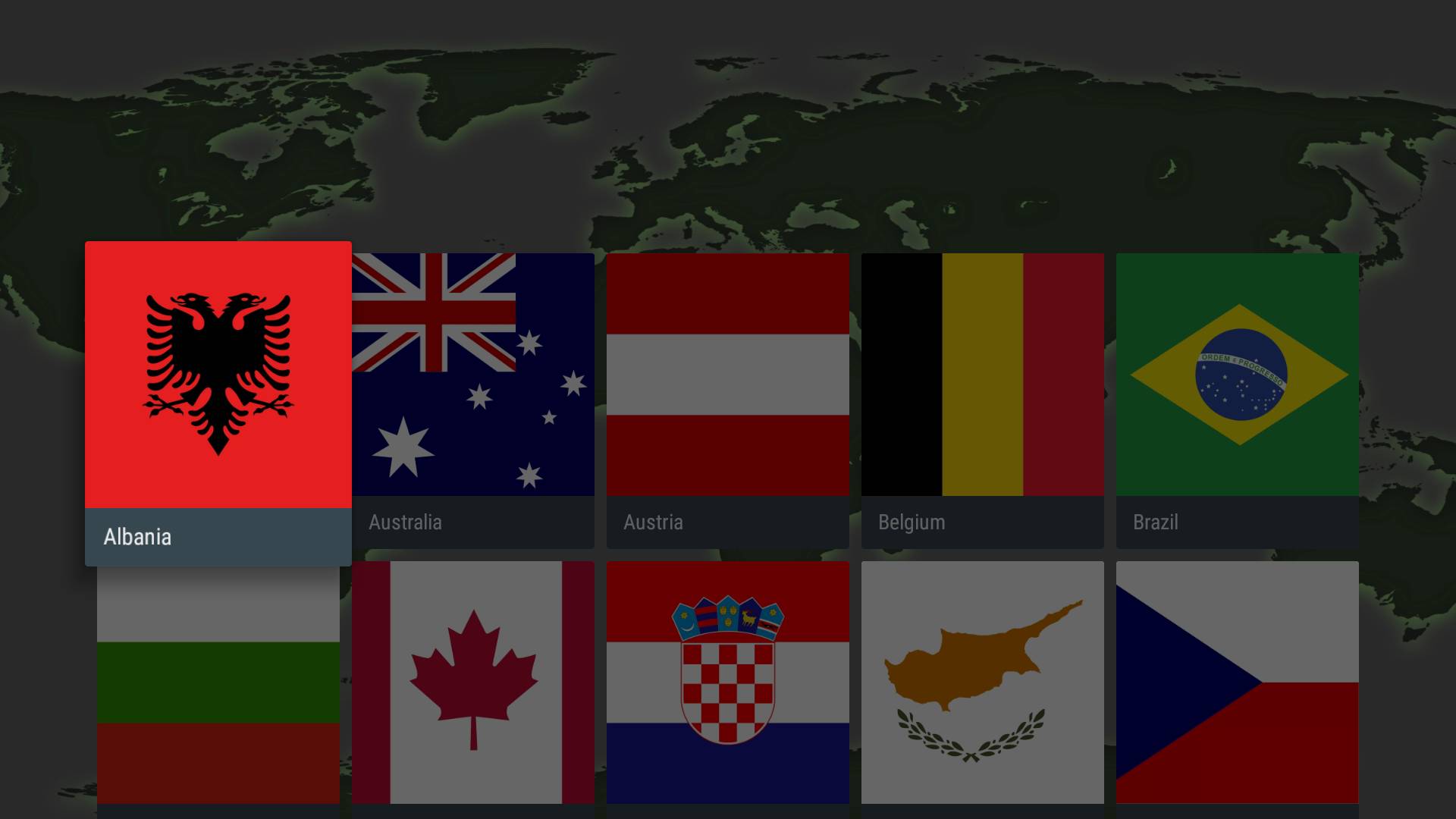
Currently, IPVanish has 1,600 servers in a total 75 locations and 53 countries. NordVPN may only have 59 countries on tap, but it still has a whopping 5,469 servers, giving users a much broader choice. The more servers, the less chance there is that high traffic will slow down a server you may be using.
Despite this, IPVanish still has all the main locations a casual VPN user would want to use, from the U.S. and U.K. to Australia and Japan, including countries with censored or blocked content, including the United Arab Emirates. Better yet, I never experienced a slow down in internet speeds when connecting to any one server. However, not having enough servers could be an issue for VPN users in other locations.
IPVanish security
IPVanish is based in the U.S., which means its subject to the “5 Eyes, 9 Eyes, and 14 Eyes” rule, which is basically a coalition of countries that can obtain and share information. Essentially, this means a government agency can intercept your private communication, or can request any records stored. Since the U.S. is a part of this coalition, IPVanish can be subject to releasing any private information.
The good news? IPVanish is a strict zero-logs VPN service provider, and is transparent about what information it does take, namely your email address when signing up. So, even if it is based in the U.S., there are no logs to be obtained. However, this could easily turn off skeptics who have no way of knowing for sure that their info isn’t being stored...
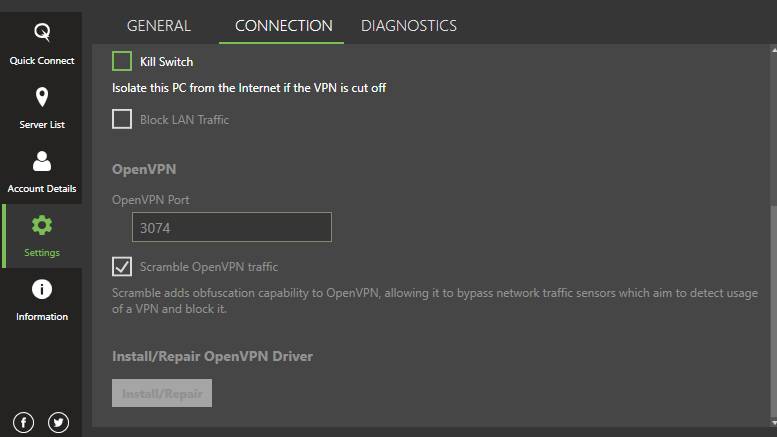
IPVanish does provide the right security for a VPN service, so it would be virtually impossible for bad actors to obtain any of your private information. It uses 256-bit AES encryption, making data unreadable, and has multiple VPN security protocols for users to choose from, although some work for only certain platforms.
This includes OpenVPN UDP/TCP and IKEv2/IPsec, the main protocols any good VPN service will have, along with L2TP for mobile devices that are not compatible with the OpenVPN protocol (although slower), along with Point-to-Point Tunneling Protocol (PPTP) on Windows as a last resort protocol when all others fail (this will hardly be used by the casual VPN user).
IPVanish user accessibility and support
The most attractive feature IPVanish offers is letting users sort the VPN’s servers by ping rate. Looking for the best server offering below 50 milliseconds? IPVanish sorts that out easily, and it delivers on those below 50ms ping rates, too. The user interface may not be to everyone’s taste though, especially on iOS and Android devices, as it isn’t the easiest to navigate compared with other VPN services.
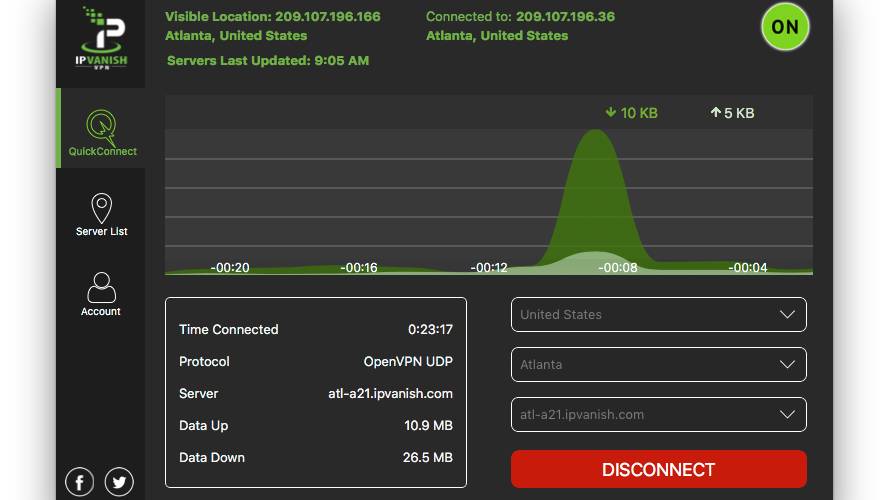
IPVanish doesn’t offer all the nifty tricks other VPN services do, like Tor compatibility, Double VPN connections or ad blockers. It’s more of a simple “click and connect” service, which is perfectly fine for many VPN users. It even offers a tutorial of its services the first time you sign up.
IPVanish also works on Windows, macOS, Fire TV, Android, iOS, Chrome OS, and Linux. Annoyingly, it offers different options for different devices. For example, there’s no kill switch option on iOS, but there is on Windows and macOS, and split tunneling is only supposed on its Android and FireOS device apps. Depending on what devices you have, you could lose out on some features that make the VPN worth its monthly price.
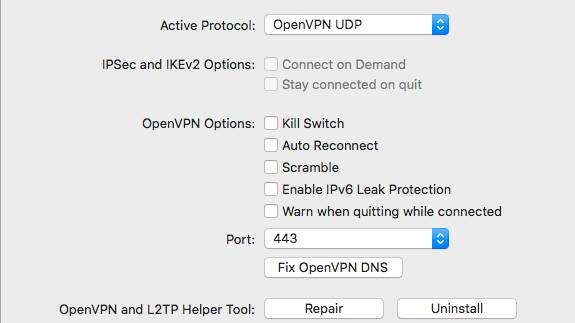
Interestingly, IPVanish has Siri Shortcuts on iOS devices, where I could connect to the last VPN I used or stop a connection to a VPN server by suggesting it out loud, which is a nice touch though not something I personally used.
Speaking of the app, it does have its mishaps. The app crashed on multiple occasions, specifically when switching from one VPN server to another. Sometimes the connect button refused to work unless I switched destinations, too, which is a mild nuisance if I’m trying to connect straight away.
Oh, a huge plus of the service? Unlimited simultaneous connections, along with a router setup thrown in for good measure.
IPVanish also offers 24/7 support on live chats, and has a support team to call or email if there are other problems that can’t be solved while looking through its main site. However, it doesn’t offer as much support as ExpressVPN or NordVPN, with the last tutorial video uploaded a year ago.
IPVanish connection speed
Using speedtest.net, I tested the connection using the automatic protocol suggested in the U.S., U.K., Germany, South Africa, and India. This was done using an iPad, with an average internet download speed of 72Mbps, ping rate of 5ms and upload speed of 20Mbps.
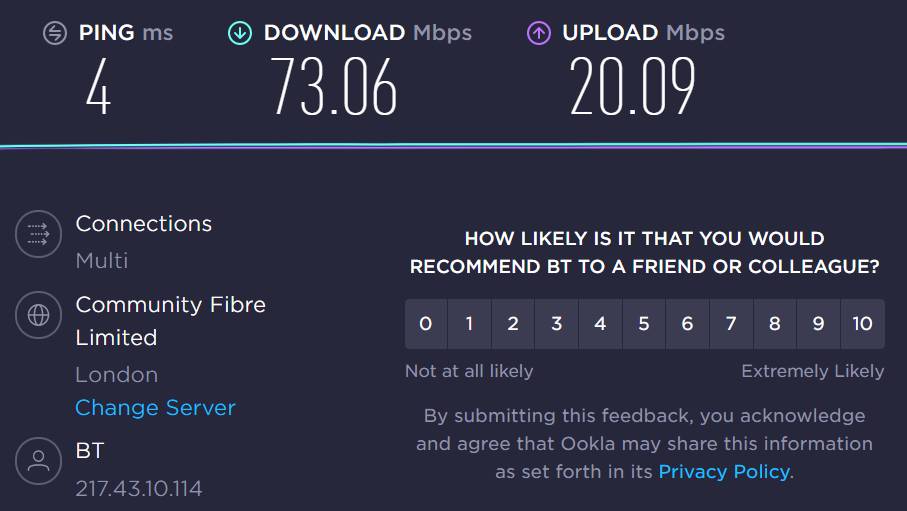
When connecting to a server in London — the fastest VPN server I can connect to in terms of my location — I got an average download speed of 65Mbps and upload speed of 18Mbps, with my ping rate only slightly increasing to 19ms. This slight dent in speed virtually goes unnoticed when browsing the web, streaming shows or playing multiplayer games. A ping rate of 50ms or below is more than enough to play games without any noticeable lag.
When connecting to Frankfurt, Germany, I got speeds of 31Mbps, upload speeds of 19Mbps and a ping rate of 32ms. That’s not amazing, but each test did deliver consistent results, showing a strong and stable connection. I then tested Mumbai, India, and got download speeds of 65Mbps, 19Mbps in upload speed and a surprising 141ms ping rate. That’s considered high enough ping for lag in multiplayer games, although the download speed meant I could stream videos as usual.
I then tried Johannesburg, South Africa and got an average download speed of 6Mbps, an upload speed of 17Mbps, and a ping rate of 451ms. This result is pretty terrible, but my location also plays a factor in these speeds.
Finally, I connected to Boston in the United States, the fastest server available, and got speeds of 66Mbps,upload speed of 19Mbps and a ping rate of 49ms. Overall, these are fairly decent speeds for VPN servers.
While these speeds are generally fantastic, I did notice that my connections occasionally cut off when my iPad went to sleep. There’s no notification when it turns off either, meaning I could easily jump back on and continue surfing the web without noticing I wasn’t not connected to a VPN. For those who seek constant privacy, this isn’t ideal.
Bottom Line
Depending on what you get out of a VPN service, IPVanish could tick all the right boxes or completely strike out. For the more experienced VPN user who requires the best privacy, they’ll probably not like the idea that IPVanish is based in the U.S., even though it has a no-logs policy. They’ll also not like the idea that different platforms offer different security features and protocols.
But for the average VPN user, it’s a reliable service that offers stable and good internet speeds, being able to bypass geo-restricted content (except for BBC iPlayer) without sacrificing speed. Having such consistent speeds is also a major plus for online gaming, and its user interface seems catered for it, making ping rates a priority. There are definitely more affordable VPNs offering a variety of better features, but if you’re after a reliable service, with the added bonus of having unlimited devices with simultaneous connections, IPVanish is a great choice.

Darragh Murphy is fascinated by all things bizarre, which usually leads to assorted coverage varying from washing machines designed for AirPods to the mischievous world of cyberattacks. Whether it's connecting Scar from The Lion King to two-factor authentication or turning his love for gadgets into a fabricated rap battle from 8 Mile, he believes there’s always a quirky spin to be made. With a Master’s degree in Magazine Journalism from The University of Sheffield, along with short stints at Kerrang! and Exposed Magazine, Darragh started his career writing about the tech industry at Time Out Dubai and ShortList Dubai, covering everything from the latest iPhone models and Huawei laptops to massive Esports events in the Middle East. Now, he can be found proudly diving into gaming, gadgets, and letting readers know the joys of docking stations for Laptop Mag.
